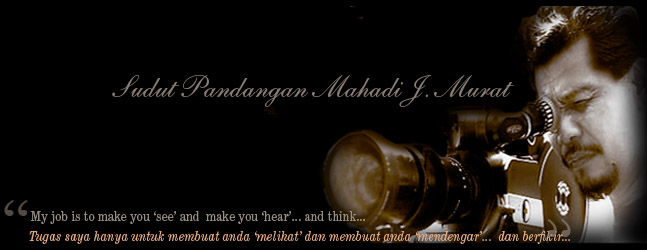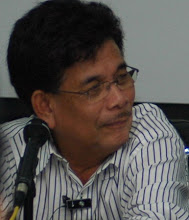The Ed Miliband story
 Ed Miliband beat older brother David, right, to the Labour leadership
Ed Miliband beat older brother David, right, to the Labour leadership They both sat in Gordon Brown's cabinet, with Ed filling the less high profile role of climate change and energy secretary.
Ed used to introduce himself at meetings as "the other Miliband".
His stunning victory in the Labour leadership contest may mean David will soon have to start using that line.
We can only speculate about what effect this sudden upheaval in the fraternal pecking order will have on their relationship, which they never tired of telling us during the leadership election is "close".
By the end of the contest, when it became clear that it would be too close to call between the two brothers, tensions began to surface, although they avoided public rows.
Former Labour leader Lord Kinnock, an Ed supporter who knows both brothers well, told a Channel 4 documentary: "David's response to Ed running has been deeply resentful."
Oona King, who was at school with the Miliband brothers and remains a friend, argues that politics can tear families apart.
"They can not be the same after this. I have seen it happen and I can see it happening between them."
But as he prepares to take on one of the biggest, most high profile, and difficult roles in British politics, how much do we actually know about Edward Samuel Miliband?
His supporters insisted during the leadership campaign that he was more "human", less aloof than David.
He is a self-confessed maths "geek" who was a secret Dallas fan as a boy - they are hardly Bobby and JR, but Ed had enough of a ruthless streak to challenge his brother for the job long thought to be his.
Marxist father During the leadership contest, both Miliband brothers made much of the fact they went to an ordinary North London comprehensive school.
And while this is true, their childhood will probably have been a little more colourful, and certainly more intellectually stimulating, than that of the average North London schoolboy.
Their father, Ralph, a Polish Jew who fled the Nazi invasion of Belgium in 1940, was one of the leading Marxist theorists of his generation - and a fierce critic of the Labour Party. Their mother, Marion Kozak, is also a well-known figures on the British left.
ED MILIBAND
- AGE: 40
- FAMILY: Lives with partner and young son
- BACKGROUND: North London Comprehensive school, Oxford university, Treasury
- POLICIES: Tax the rich, tackle inequality, rebuild British industry
- STYLE: Geeky but more laidback than brother David
- KEY SOUNDBITE: "I am not the candidate for the easy life"
- RANDOM FACT: He says he was not "cool" enough to hang out with ex Labour MP Oona King, who was in the year above him at school
The young Milibands were always encouraged to chip into the debate with their own opinions and, apparently, Tony Benn was even known to have given the brothers a few pointers with their homework.
"[They were] very, very fresh lively, intelligent… and I must admit Ed amazed me by being able to do the Rubik's Cube... in one minute 20 seconds and, as I recall, just with one hand too," remembers socialist academic Robin Blackburn, a close friend of Ralph's.
Ed recently told The Daily Mirror how he bonded with his father when he accompanied him on trips to the United States where Ralph worked as a lecturer.
Campaigning mother But although he is sometimes said to be politically closer to Ralph than his brother, in truth the two Miliband brothers are worlds away from his brand of socialism.
Although no lover of Soviet-style one-party rule or violent revolution, he had abandoned the Labour Party long before his sons were born, believing socialism could never be achieved through Parliamentary means.
“Start Quote
End Quote Ed Miliband on his university daysI wasn't particularly bookish; what really got me going was student activism, and mobilising people”
"There's no doubt that Ed got a lot of his drive from Marion and a lot of his feel for nitty-gritty grassroots politics from Marion too," says Dr Marc Stears, politics fellow at the University of Oxford.
Friends say the contest between the boys this summer has been a huge "strain" for Marion. She has even told people it would have been much easier had they simply become academics rather than politicians.
David and Ed's background helped speed their way into Labour politics - Ed spent the summer after his O-levels doing work experience for Tony Benn, then a senior Labour left-winger. Mr Benn would reward him years later by backing his leadership campaign.
By their teenage years, both brothers were fully fledged campaigners for Labour. Ed was never part of the "cool" set at school, although he has joked that he did not get beaten up too often.
Student activism Both brothers have said the experience of seeing equally bright pupils, from less privileged backgrounds, failing to reach their potential had a profound impact on their politics and outlook.
The more academically gifted of the two, Ed did better than David in his A-levels, following his brother to Corpus Christi College in Oxford, where he became involved in student activism.
"My best four weeks at university were when we had a rent dispute with the college," he told The Guardian in an interview recently.
"I wasn't particularly bookish; what really got me going was student activism, and mobilising people. It was quite a hard thing to recognise if you come from an academic family, but, if I'm honest, it's true. Politics always motivated me more than academia."
At the time, he was described as being less opinionated than his brother, who had a reputation as fiercely bright but rather socially inept.
After briefly working as a television journalist, Ed was taken on by current deputy Labour leader Harriet Harman, then a shadow minister, as a speech writer and researcher.
His number-crunching skills soon brought him to the attention of the then shadow chancellor.
Gordon Brown "burgled him off Harriet", said Charlie Whelan, Mr Brown's former spin doctor has said.
'Not tribal' When Labour came to power, Ed was pitched into the never-ending turf wars between the Treasury and Downing Street, coming to be seen as one of Mr Brown's key backroom allies.
 The Miliband family remains close
The Miliband family remains close It is said that Ed would often be despatched from the Brown camp to make peace with Downing Street, where David worked as head of Blair's policy unit.
"I was the one who tried to bridge some of the nonsense that there was," is how he now describes his role.
But he baulks at the usual description of himself as a "Brownite", claiming to be one of the least "tribal" of MPs.
In 2003, he spent a year's sabbatical at Harvard University, to study and lecture at Harvard's Centre for European Studies, before becoming an MP for the safe seat of Doncaster North in 2005. Like his brother, he belongs to the generation of Labour politicians who, until recently, had known nothing but power
He lives in Primrose Hill, the same fashionable North London district where he grew up, with partner Justine and their young son. Another son is on the way in November.
Although essentially cast from the same centrist, New Labour mould, he positioned himself firmly to the left of his brother during the leadership race, campaigning for a "living wage" higher than the minimum wage and a High Pay Commission to control top salaries.
Iraq war He has won support from the left by calling for the retention of the 50p tax rate and opposing a third runway at Heathrow Airport and he was widely praised by green activists during his time as climate change secretary.
“Start Quote
End Quote Unite trade union leafletHe understands the Labour Party needs to change and he is the best candidate to reconnect Labour with the concerns of ordinary working people”
Responding to accusations that he was simply saying what Labour activists wanted to hear with his appeals to the left wing, Ed told a Westminster press lunch "we cannot define ourselves in opposition to our party" and argued that the "centre ground should be shaped from the left".
There were no public rows with David during the seemingly never-ending series of leadership hustings around the country, but as the contest reached its climax and it became increasingly clear that it was a straight fight between the two Milibands, tensions began to surface.
In one particularly telling exchange, David warned Labour against retreating into its left wing "comfort zone". Within minutes, Ed had responded by warning the party not to retreat into its New Labour "comfort zone".
Despite being endlessly talked up by his supporters as the more affable and approachable of the two, who is more adept at working the Commons tea room as well as dealing with ordinary voters, his relaxed demeanour is said by some commentators to mask a true killer instinct.
Some worry that he was schooled in the dark arts of negative briefing during his years in the Treasury. He insists the main attribute he learned from Gordon Brown was "toughness".
Union backing Apart from having sharp enough elbows to challenge his better-known brother for Labour's top job, he has also shown chutzpah on the campaign trail.
He raised eyebrows at early hustings meetings by arriving with his own band of placard-waving supporters.
But while David received the backing of the New Labour establishment, including Peter Mandelson, who warned against an Ed victory, Ed successfully managed to portray himself as the "change" candidate without alienating the party's mainstream.
Major figures from the party's past, such as former leader Lord Kinnock and his former deputy Lord Hattersley, were sufficiently impressed to lend him their backing.
But his real coup was to secure the backing of three of the four Britain's biggest trade unions - GMB, Unison and Unite.
The latter was a bitter blow to his former Treasury colleague and leadership rival Ed Balls, who had been banking on Unite's support.
Unite was even accused of breaking the rules of the contest by including a leaflet pledging its support for Ed Miliband along with the ballot papers for the contest it sent to its 950,000 members eligible to vote.
"He understands the Labour Party needs to change and he is the best candidate to reconnect Labour with the concerns of ordinary working people," Derek Simpson and Tony Woodley, Unite's joint general secretaries, say in the leaflet.
GMB leader Paul Kenny threatened to withdraw funding from the Labour Party if Ed Miliband did not win, amid talk of a union plot to prevent David Miliband, seen as the more Blairite of the two, and therefore committed to public service reform, from taking the leadership.
Ed he was installed as favourite at the bookmakers for the first time, as counting in the ballot got under way, speaking of the need "to unite as a party and move forward and be a credible opposition".
He also has spoken of the need to move beyond the Blair/Brown era, calling for an end to the "factionalism and psychodramas" of Labour's past.
Some have already begun to speculate on what new psychodramas might emerge now that Ed has usurped what was assumed to be the natural order of things by beating David to the top job.


